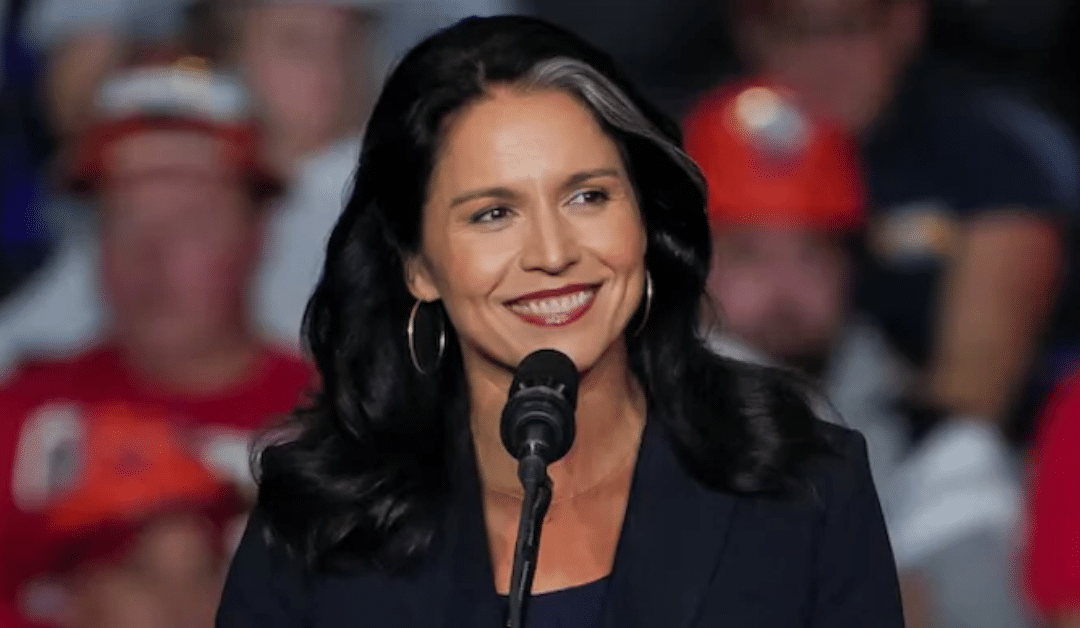The U.S. Director of National Intelligence (DNI), Tulsi Gabbard, has embarked on a significant Indo-Pacific tour, reinforcing the United States’ commitment to regional security and strategic alliances. This diplomatic journey includes high-level visits to Japan, Thailand, and India, reflecting the growing importance of the Indo-Pacific in global geopolitics.
With security concerns rising in the region, Gabbard’s tour is expected to focus on strengthening intelligence-sharing, defense collaborations, and economic ties. Her visit also comes at a time when the Indo-Pacific is witnessing increasing geopolitical shifts, particularly with China’s expanding influence.
A Strategic Itinerary: Japan, Thailand & India
Gabbard’s tour began with a stop in Honolulu, where she engaged with officials from the U.S. Indo-Pacific Command (INDOPACOM). She met with intelligence and defense leaders, as well as U.S. troops, emphasizing the importance of strategic partnerships in ensuring regional stability.
Japan
In Japan, Gabbard met with top government officials and defense leaders to discuss maritime security, trade cooperation, and technological partnerships. Given Japan’s key role in the U.S.’s Indo-Pacific strategy, the discussions likely revolved around intelligence-sharing, cybersecurity, and collaborative defense initiatives.
Thailand
Thailand, a long-standing U.S. ally in Southeast Asia, was the next stop. Gabbard’s meetings there were centered on counterterrorism efforts, military cooperation, and economic partnerships. Given Thailand’s strategic location, the discussions also focused on strengthening the country’s role in maintaining regional stability.
India: A Pivotal Stop in the Indo-Pacific Tour
The most anticipated leg of Gabbard’s journey is her visit to India. This visit holds immense significance as it follows her earlier discussions with Indian Prime Minister Narendra Modi in Washington, D.C., where both leaders emphasized the need for stronger bilateral cooperation.
India’s growing influence in the Indo-Pacific, along with its defense and economic partnerships with the U.S., makes this visit crucial.
Topics expected to be covered include:
- Defense and Security Collaboration – Strengthening military ties, intelligence-sharing, and joint exercises.
- Technology & Cybersecurity – Enhancing cooperation in AI, cyber defense, and critical technologies.
- Economic & Trade Relations – Expanding trade partnerships, investment opportunities, and infrastructure development in the region.
With both nations committed to ensuring a free and open Indo-Pacific, Gabbard’s visit is seen as a strategic move to deepen diplomatic ties.
Tulsi Gabbard’s Role and Influence in the Indo-Pacific
As the first Hindu-American in the U.S. Congress and a former Democratic presidential candidate, Tulsi Gabbard brings a unique perspective to the Indo-Pacific region. Her background, including her deep connections to the Pacific as a native of Hawaii, makes her an influential figure in shaping U.S. foreign policy in the region.
Since becoming the U.S. Director of National Intelligence, Gabbard has focused on strengthening global partnerships to counter emerging threats, including cyber warfare, terrorism, and geopolitical rivalries. Her tour aligns with broader U.S. strategic goals of balancing power in the Indo-Pacific and fostering alliances to ensure regional security.
Implications of the Tour: Strengthening the Indo-Pacific Strategy
This tour marks a significant step in reinforcing the U.S.’s commitment to its Indo-Pacific allies. With China’s growing presence in the South China Sea and ongoing regional tensions, the U.S. is keen on solidifying relationships with key players like India, Japan, and Thailand.
The visit also reflects Washington’s recognition of India as a crucial partner in maintaining regional stability. Strengthening India-U.S. ties through intelligence-sharing, military collaboration, and economic investments will be vital in shaping the future of the Indo-Pacific.
Gabbard’s engagements with regional leaders are expected to lay the groundwork for long-term diplomatic initiatives, security frameworks, and economic collaborations that will benefit not only the U.S. but also its Indo-Pacific partners.


